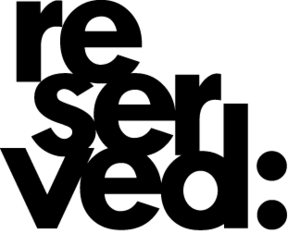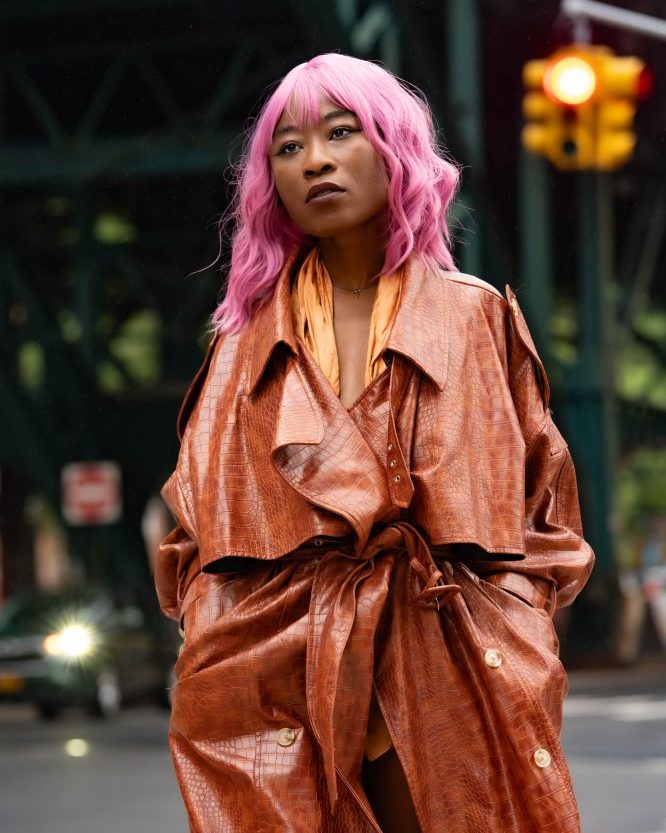
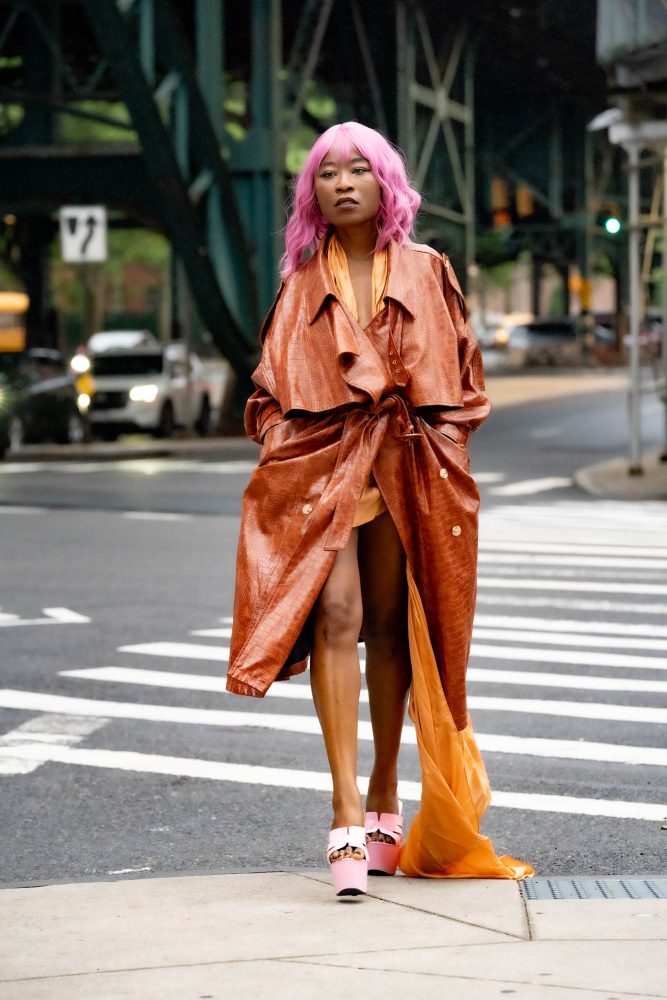
Nana Ghana photographed by Patrick Reynolds
Nana Ghana has been that girl about town. A fixture amongst LA’s art scene from Venice to Downtown with a touch of West Hollywood for good measure. The actress has long collaborated with various creatives in a quest of artistic vision. When the pandemic happened she retreated, as many of us to hone in her purpose and exerted a new creative vision. At the recent Harlem Film Festival the Actress/Director presented You Are Always Right Here an emotional picture about a woman grieving her former life while navigating the 2020 pandemic.
You Are Always Right Here unfolds linearly, following the day to day mundaneness of the lockdown. Eve, a young professional woman finds some solace in baking bread, deep cleaning, reading, virtual therapy and gardening, for a moment there things are feeling good and content, but soon the painful memories of her past life take over, anxiety and crippling depression starts to set in.
How did this project come about and what was the process of filming during the pandemic?
In 2020 while locked down in my apartment in Ktown and trying to make sense of the whole world, I did what came natural to me. I started writing.
At that stage my writing was a way for me to make sense of the world . In the very early days of the pandemic, I kept getting a vision of this woman trapped in her house trying to navigate the new stay at home order. One night the story about this woman living alone in isolation flowed from my imagination onto paper.
Since it was my first time starring in my own feature film , I approached embodying this character as a performance art piece, because I was living and making this film simultaneously as the pandemic unfolded in real time.
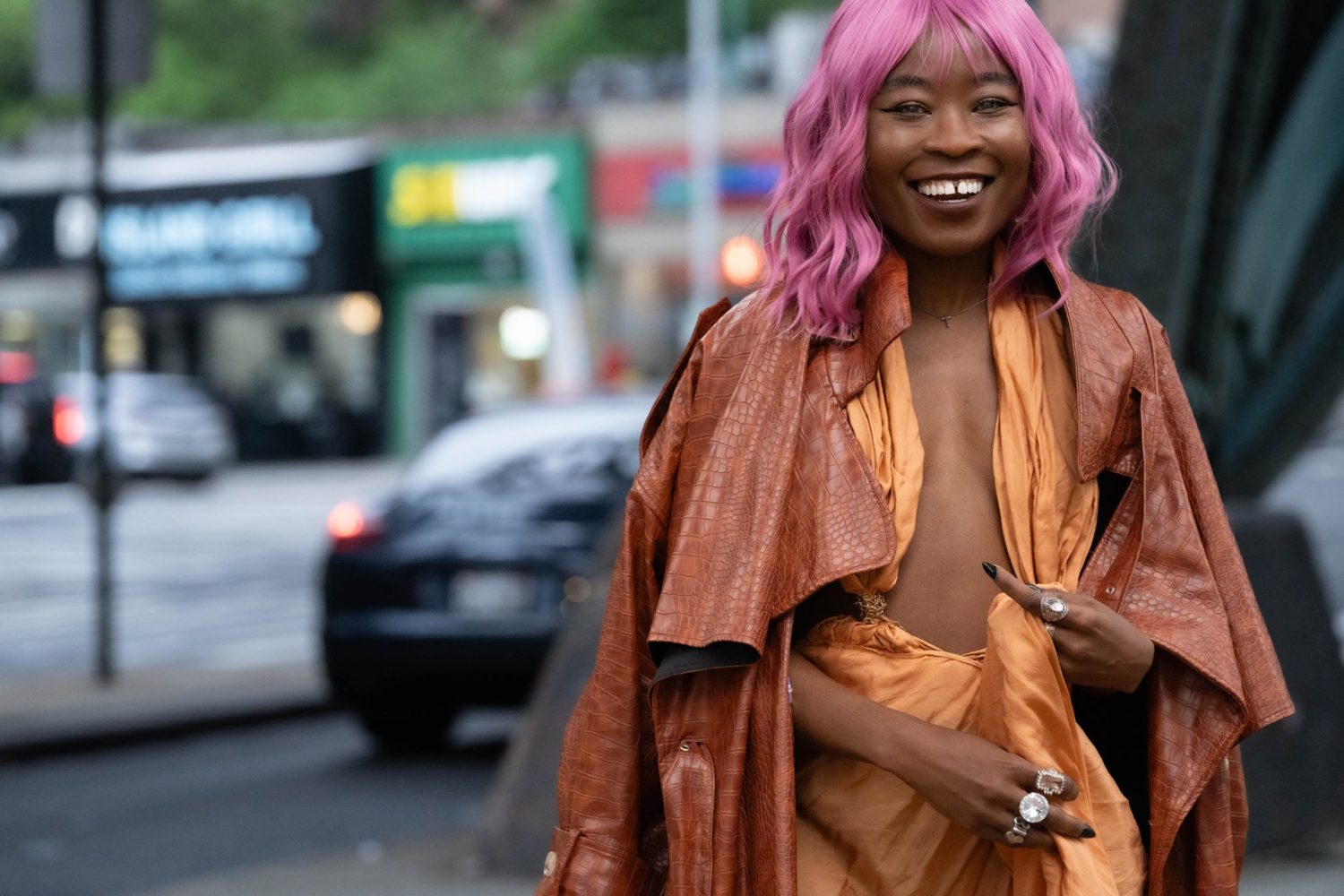
Nana Ghana photographed by Patrick Reynolds
What is this project? Something you created purely out of necessity or were there different creative projects you felt aided in merging the stories narrative.
This is my sophomore feature film, A film I call an emotional picture, a time capsule. Unlike any of my works, You Are Always Right Here was born out of necessity, it was my own way of processing my life and womanhood through this character in a fictional way. As an immigrant, African black woman experiencing these wild revolutionary times in human history, it was cathartic to simply create, I wanted the film to serve as a container which allowed the viewer to bare witness to a full spectrum emotions, like grief, rage, pain, vulnerability and softness, an emotional journey we what we don’t often see our black female heroine go on.
How long did it take to compile this project together and what collaborators did you work with to see it through?
We shot the film on and off during the pandemic. My producing partner Chris Panizzon (also produced LA Woman Rising) and I were in the trenches together. Production during the pandemic required a lot of strategy and boldness. My entire crew and cast, very very grateful for them.
I am very grateful for the super small crew, especially to both of my cinematographers that I worked very closely with in both LA and NYC (virtually) Patrick Reynolds and Peter Garafalo. My editor Spenser Riech who was an incredible co pilot helped me tell this story.
I was blessed to have been able to cast my friends who also happen to be such amazing actors.
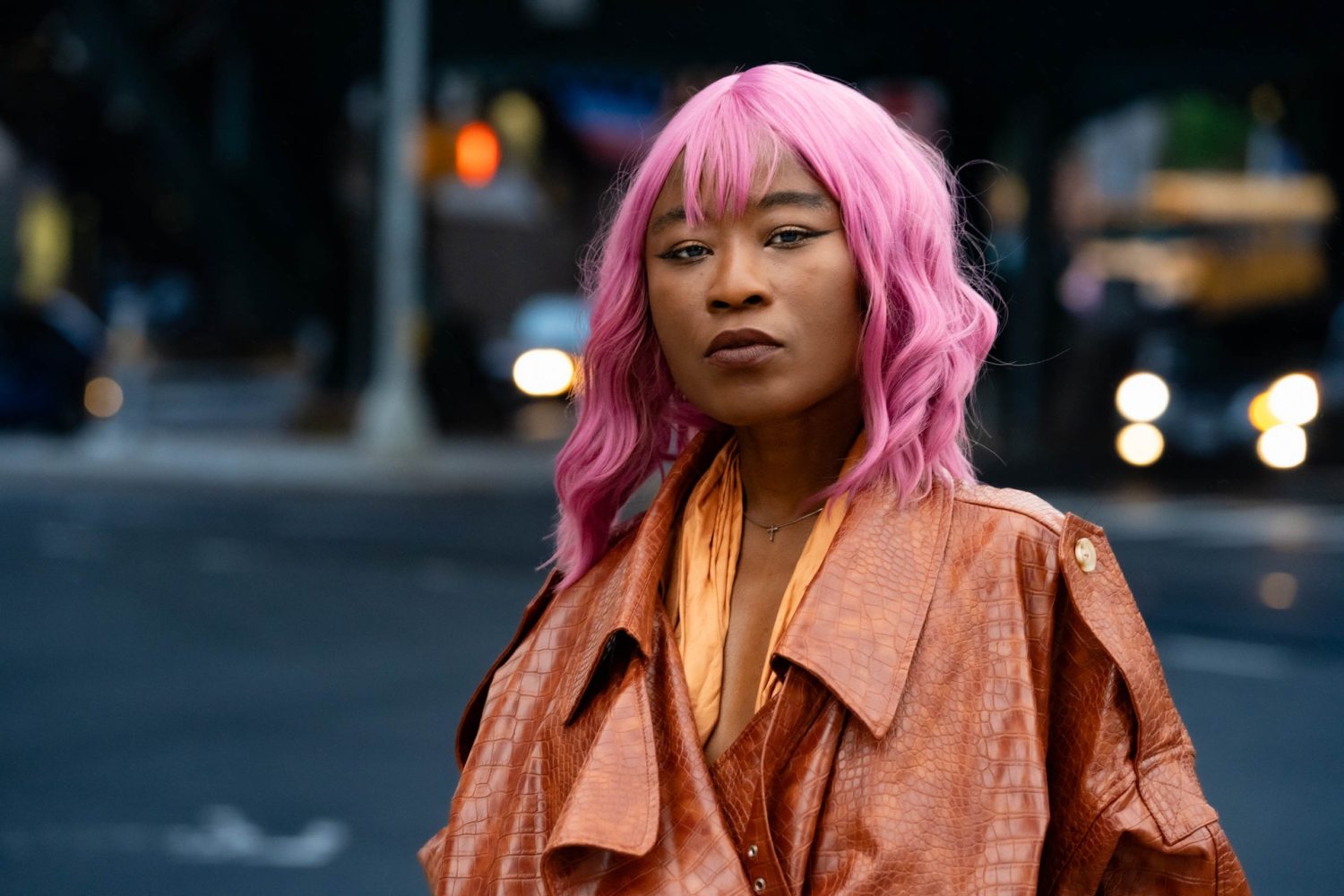
Nana Ghana photographed by Patrick Reynolds
You are very involved in the process of the story. What was the whole interaction you had with the character you play?
Directing myself was interesting, I feel that I really grew to trust my instincts and second take is 9 times out of 10 better, ( I hope to have more opportunities to master it)
I approached my character organically while staying true to the circumstances of the story and scene.
With your art and fashion background, what has been the main consideration for the visual aesthetics?
You Are Always Right Here is shot cinéma vérité style, the visual aesthetics invites the audience a voyeuristic view into Eve’s quarantine life .
Grounded in art house style, it was important to me to invoke the viewer back into that dark time in history as an offering, an experience for them to also review their own melancholy while sojourning with this woman’s healing and self discovery through isolation.
What has the experience been presenting this piece during the Harlem international film festival?
Premiere and opening at the 19th Harlem international film festival was wonderful and warm. It’s an unexplainable feeling to experience an audience watching your film and reacting to it, the moments where they laughed, moments when they leaned in, moments where they pulled away, it made it all worth how hard it is to produce and complete your film independently. Also coming back to NYC to premiere my second film after more than a decade heading to LA to pursue my dreams, was pretty cool.
Now that this projects out what is next and what has been the overall response?
The film is making its festival run through the summer, fall and winter and will be available on SVOD/VOD early 2025.
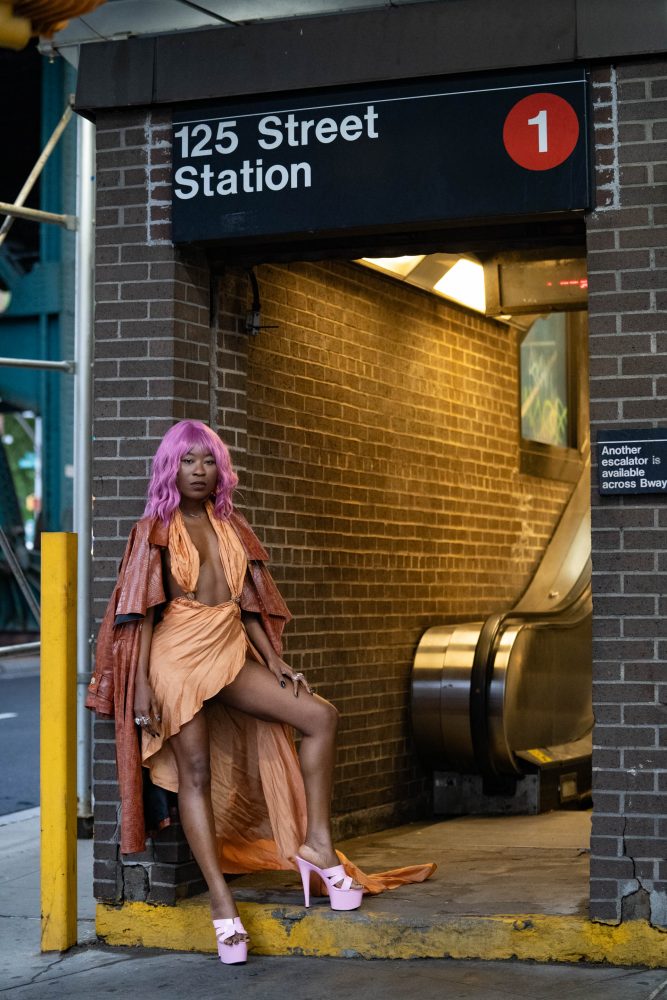
Nana Ghana photographed by Patrick Reynolds

